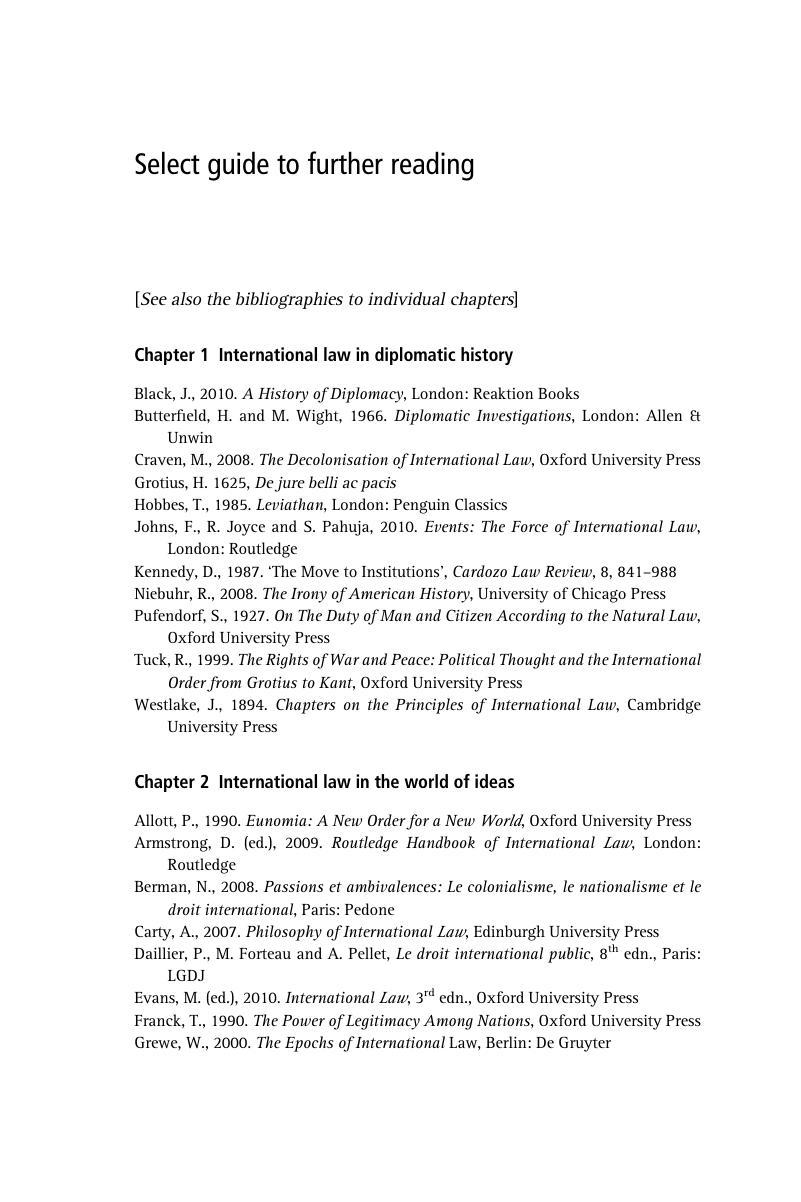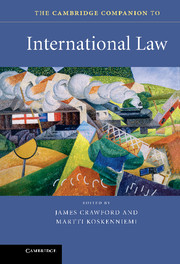Book contents
- Frontmatter
- Contents
- Preface
- Notes on contributors
- Introduction
- Part I The contexts of international law
- Part II International law and the state
- Part III Techniques and arenas
- Part IV Projects of international law
- Guide to electronic sources of international law
- International law chronology
- Select guide to further reading
- Index
- References
Select guide to further reading
Published online by Cambridge University Press: 05 July 2015
- Frontmatter
- Contents
- Preface
- Notes on contributors
- Introduction
- Part I The contexts of international law
- Part II International law and the state
- Part III Techniques and arenas
- Part IV Projects of international law
- Guide to electronic sources of international law
- International law chronology
- Select guide to further reading
- Index
- References
Summary

- Type
- Chapter
- Information
- The Cambridge Companion to International Law , pp. 444 - 452Publisher: Cambridge University PressPrint publication year: 2012



